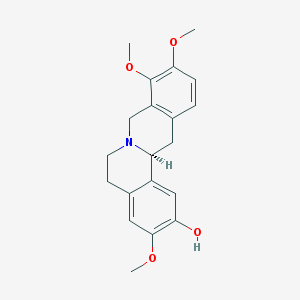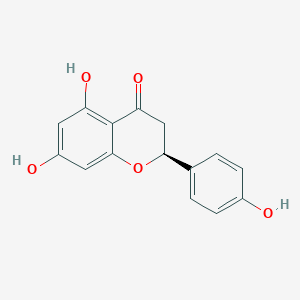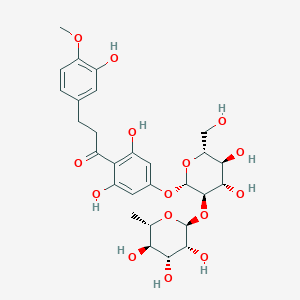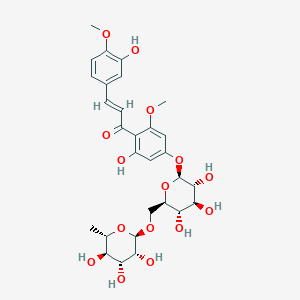Description
Isocorypalmine (Tetrahydrocolumbamine) is a dopamine receptor isolated from the crude base fraction of Corydalis chaerophylla. It reduces the behavioral sensitization and rewarding effects of cocaine in mice.
Isocorypalmine is a bioactive alkaloid compound primarily found in plants from the genus Corydalis, particularly Corydalis yanhusuo, a traditional Chinese medicinal herb. This compound is structurally similar to other natural alkaloids like morphine and has been a subject of interest due to its potential therapeutic applications. Here are some of the main benefits and applications of Isocorypalmine:
- Analgesic Properties: Isocorypalmine has been researched for its analgesic (pain-relieving) effects. It may work similarly to opioids but with potentially fewer side effects. This makes it a candidate for treating various types of pain, including chronic and neuropathic pain.
- Neuroprotective Effects: Some studies suggest that Isocorypalmine might have neuroprotective properties, which could be beneficial in treating neurological disorders such as Parkinson’s disease. It might help in managing symptoms or slowing the progression of such conditions.
- Anti-Addiction Potential: There is research indicating that Isocorypalmine could help in treating addiction, particularly opioid addiction. It may work by interacting with the brain’s reward pathways, thereby reducing the craving and withdrawal symptoms associated with opioid dependence.
- Anti-Inflammatory and Antioxidant Effects: Like many natural compounds, Isocorypalmine might possess anti-inflammatory and antioxidant properties. This could make it useful in managing inflammatory conditions and combating oxidative stress in the body.
- Cancer Research: Preliminary research has explored the potential of Isocorypalmine in cancer therapy. Its ability to induce apoptosis (programmed cell death) in cancer cells is an area of ongoing investigation.
- Mental Health Applications: There is interest in exploring Isocorypalmine’s effects on mental health, particularly in managing depression and anxiety, though this area requires more extensive research.





